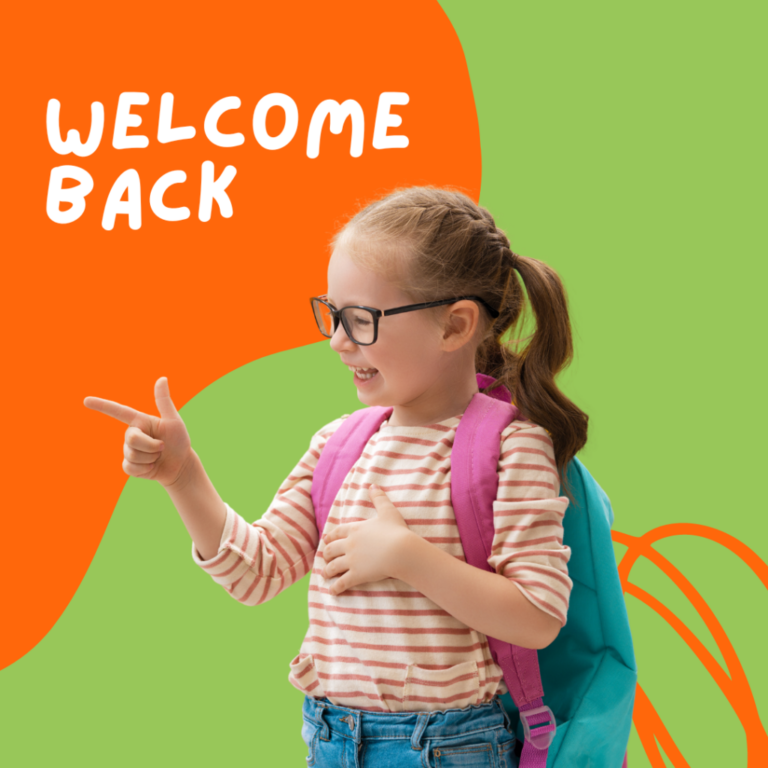
Back-to-school in Los Angeles is an exciting time for both parents and elementary students. While the summer sun continues to warm the city, it’s time to switch gears and prepare for the upcoming school year. As parents of elementary students, you’re tasked with a range of important responsibilities to ensure a smooth transition into this exciting phase.
As parents in Los Angeles, we have a lot to juggle: there are carpools to arrange, school testing to worry about, extracurricular activities to coordinate, and of course, making sure our kids are thriving in their education. The city’s diverse educational landscape offers a multitude of opportunities for growth and enrichment. As the back-to-school season kicks off, Tutoring4Less is excited to welcome students and parents to a new chapter of learning and growth. Today, we are sharing back-to-school tips to help your child have a successful school year.
Establish Routines
Most elementary school age kids in Los Angeles have busy schedules. After a long day at school, there are sports, extracurricular activities, playdates, or after-school care. In Southern California, we also have extra time in traffic to contend with.
However, children thrive on routines. A daily schedule benefits both younger and older children by providing a structured environment. Start adjusting their sleep schedules a week or two before school starts to ensure they get enough rest. Create a consistent morning and bedtime routine to help them transition smoothly. Remember that consistency is key. It might take some time for routines to become established habits, but the effort is well worth it. As your child experiences the benefits of these routines, they’ll likely become more engaged, focused, and emotionally resilient, both in school and in their daily life.
Create A Dedicated Homework Space
Crafting a dedicated study space for your kindergartener is a wonderful way to support their early learning journey. Even though your little one might not have a ton of homework in kindergarten, having a special space at home can still help them develop important study skills for the future. Discover a quiet corner or cozy spot where they can explore and learn without distractions. Ensure that the area is well-lit and comfortable, allowing them to focus on their activities. Keep their learning materials and supplies organized and easily accessible to encourage independence. Consider adding colorful decorations or playful elements that spark their imagination and make the space inviting. By creating a clutter-free and engaging study nook, you’re providing a nurturing environment where your kindergartener can thrive and develop essential skills that will set the foundation for their educational success.
Nurture Curiosity
Study habits for kindergarteners are not just about organization, it’s also about encouraging curiosity. Curiosity helps children be more observant and to think about things and try to figure them out. In one study, greater curiosity was associated with greater kindergarten reading and math academic achievement. By fostering curiosity in your kindergartener, you’re setting the stage for a lifelong love of learning. Embrace their natural wonder and provide a supportive environment that encourages exploration and growth. Here are some tips to encourage curiosity as a parent:
- Encourage Questions: Welcome your child’s questions and be ready to answer them. Show enthusiasm for their curiosity and help them explore their interests.
- Explore Together: Engage in activities that spark curiosity, such as nature walks, museum visits, or science experiments. Share the excitement of discovery with your child.
- Read Aloud: Regularly read books together on a variety of subjects. This exposes your child to new ideas and encourages them to ask questions and learn more.
- Hands-On Learning: Provide opportunities for hands-on exploration, like building with blocks, creating art, or simple science experiments. These activities allow them to learn through play.
- Follow Their Lead: Pay attention to what interests your child and encourage them to delve deeper into those topics. This empowers them to take ownership of their learning.
- Use Open-Ended Questions: Instead of giving direct answers, ask open-ended questions that encourage critical thinking and exploration. For example, “What do you think will happen if…?”
Make Sleep A Priority
Now, let’s talk about sleep and homework.
The American Academy of Sleep Medicine recommends that kids aged 6–12 should aim for 9–12 hours of sleep a day, while teens aged 13–18 should get around 8–10 hours. Not getting enough shut-eye can lead to problems like obesity, diabetes, and even mood issues, says the CDC. Poor sleep could even affect reading skills, as research in the British Journal of Educational Psychology suggests. Children whose parents reported increased sleep-disordered breathing, daytime sleepiness, and a short time for children to fall asleep (which is generally associated with increased tiredness) had poorer performance on reading tasks for both words and nonwords.
You can help your child sleep better by sticking to a regular sleep schedule, both on school days and weekends. Keep their sleep space comfortable and calming – a tidy, dark room works wonders. And don’t forget the temperature – a cool 65 to 67 degrees is the sweet spot for a great night’s sleep.
Limit Screen Time (Yes, We Know It’s Hard)
We know it’s tough, especially with little ones, but cutting down on screen time is a good idea. It can help your child sleep better, focus more, and feel happier.
For example, one study showed that students who spent four to six hours on digital media had a 49% lower chance of always or usually finishing their homework than those with less than two hours of media time per day. Those with six or more hours of device use had 63% lower odds of finishing their homework!
Cutting back on screen time is a smart move. It helps improve sleep, focus, and overall well-being. Try setting limits on screen use and finding fun things to do together that don’t involve screens. It might not be easy, but it’s a positive change for your child’s health and development!
Study Habits For Grade Schoolers and More at Tutoring4Less

At Tutoring4Less, we’re here to guide students on the path to developing effective study habits that truly make a difference. We work closely with parents to not only support their child’s academic progress but also to foster the development of effective study habits. Our experienced tutors understand that every student is unique, and we tailor our approach to match individual learning styles and needs. Through open communication and regular updates, parents are actively involved in their child’s educational journey. With personalized one-on-one sessions, we help students grasp essential study techniques, time management skills, and organization strategies that enhance their academic performance as early as Kindergarten. By instilling these habits early on, we empower students to become independent learners, confident problem solvers, and achievers in and out of the classroom.
Schedule a free assessment for your child, and learn how we can help them improve by as much as an entire grade level.

